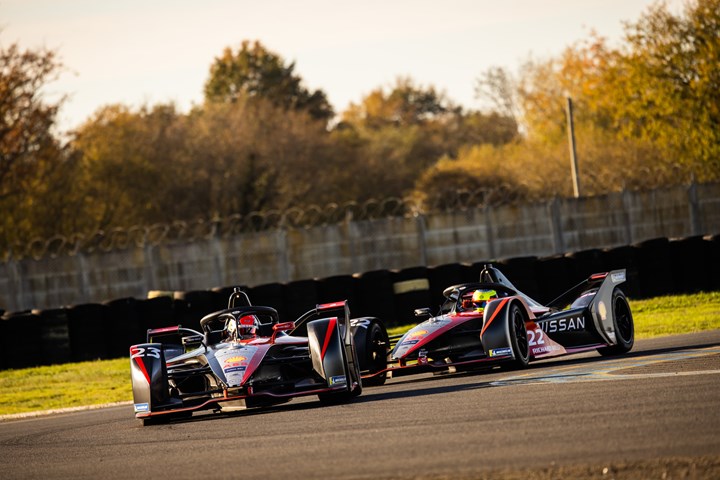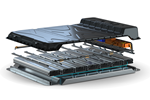DuPont, Nissan e.dams Formula E team partner for advanced automotive electrification
Technical partnership will act as a testbed to explore and accelerate new technologies for safer, more advanced electric vehicles in motorsport, and for future commercial applications.

Photo Credit: Dupont
DuPont (Wilmington, Del., U.S.) and the Nissan e.dams Formula E team announced on Feb. 16 a technical partnership to accelerate the delivery of new technologies in vehicle electrification. Working closely together, engineering teams from both organizations will combine expertise to focus on achieving breakthroughs in e-motor performance and battery safety.
As automakers and OEMs increasingly shift their focus from traditional internal combustion engines (ICEs) to fully electric vehicle components and systems, Dupont report that technology and materials tested extensively under the pressures of the Formula E racetrack will play a key role in solving complex automotive challenges within wider electrification. A key element of the partnership with Nissan e.dams will be the exploration of motorsport as a testbed for new technology, with essential and tangible applications in future commercial electrified vehicles.
“We welcome DuPont to the Nissan e.dams racing family as a new partner for season seven of the ABB FIA Formula E World Championship,” says Tommaso Volpe, Nissan Global Motorsports director. “Nissan competes in Formula E to continuously build our electric vehicle expertise as we strive to produce even more exciting, efficient and safe road cars for our customers. DuPont shares our passion for engineering excellence and technical advancement in every aspect of motorsports competition and road car development, so they are a perfect partner as we race together in Formula E, driving forward for success and knowledge.”
DuPont typically collaborates with global partners and automotive manufacturers to develop materials and technologies that help solve challenges on both the racetrack and road. These include new ways to reduce weight, improve heat and thermal management, boost connectivity and make cars safer for drivers and passengers. While this partnership represents a significant step forward in DuPont’s innovation helping to advance vehicle electrification, the company also notes that it is an extension of a successful and ongoing technical program with the Alpine F1 team (formerly Renault DP World F1 team), which has seen engineers from both parties working together to co-engineer innovations within the car’s hybrid powertrain.
“The ABB FIA Formula E World Championship is an exciting competition that brings to life the very best in electric engineering and the high levels of performance it can achieve,” adds Tina Wu, vice president and general manager, Advanced Solutions, DuPont. “We look forward to working with Nissan e.dams. Together, we’ll push the boundaries of innovation in vehicle electrification — both on the track and through our work on commercial applications with Nissan. The future is electric, and this partnership puts both organizations at the forefront of the advancement of sustainable mobility.”
DuPont joins current Nissan e.dams partners Shell, Richard Mille, LEMO and CFI. Both teams will start working together immediately in preparation for Nissan’s third consecutive year in the ABB FIA Formula E World Championship, beginning with a double-header night race in Diriyah, Saudi Arabia, on Feb. 26, 2021.
Related Content
-
Carbon fiber, bionic design achieve peak performance in race-ready production vehicle
Porsche worked with Action Composites to design and manufacture an innovative carbon fiber safety cage option to lightweight one of its series race vehicles, built in a one-shot compression molding process.
-
Cryo-compressed hydrogen, the best solution for storage and refueling stations?
Cryomotive’s CRYOGAS solution claims the highest storage density, lowest refueling cost and widest operating range without H2 losses while using one-fifth the carbon fiber required in compressed gas tanks.
-
Plant tour: Joby Aviation, Marina, Calif., U.S.
As the advanced air mobility market begins to take shape, market leader Joby Aviation works to industrialize composites manufacturing for its first-generation, composites-intensive, all-electric air taxi.
















